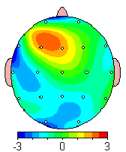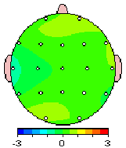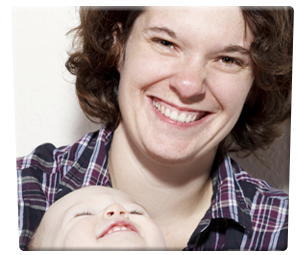Neurofeedback: Treatment For Post Natal Depression
Can Neurofeedback help with Post Natal Depression ?
If you are a parent who has symptoms of Post Natal Depression we believe that Neurofeedback can help you. Post Natal Depression is not only experienced by mothers, and there is no reason to feel guilty or ashamed. The symptoms of depression are outside your control and they don’t make you bad parent.
However, the choice to get treatment is in your control. Neurofeedback is a powerful natural method to reduce and/or eliminate the symptoms of Depression without any medications.
There is more information about Post Natal Depression here.
Contact us and discuss your symptoms, we will do everything in our power to help you. We will work at the neurobiological level to stabilise and regulate activity of your brain. If you wish to talk with someone about your feelings and share your experience contact the Association for Post-Natal Illness.
BrainTrainWA would like to support the Association for Post-Natal Illness, the leading charity in its field, and we will donate 10% from every session payment from clients with Post Natal Depression.
Let us help you, feel yourself again and fully enjoy your family !
For more questions or discuss how Neurofeedback training can help with Post Natal Depression, please get in touch. There is no fee and no obligation for your initial consultation. Please call BrainTrainWA today on 0207 978 0186.Our main page on Neurofeedback for Depression is here, see extracts below.
The Brain and Depression
Dr Corydon Hammond, PhD Professor & Psychologist from Physical Medicine & Rehabilitation University of Utah School of Medicine describes the Depression from the biological point of view:
“The left frontal area of the brain is associated with positive emotions and approach motivation, which is a desire to be involved with other people. The right frontal area of the brain is more associated with depression and fear, accompanied by motivation to withdraw from and avoid other people. When there is more slow brainwave activity in the left frontal area, this part of the brain is more inactive and the right frontal area is more dominant. Such a person is predisposed to become depressed more easily, to withdraw from other people, and to be anxious”.
On the left is the brain of someone with a long history of depression.The left frontal area has an excess of slow, alpha brainwave activity.
On the right the brain map with relatively normal activity.
Treatment for Depression
Depression is expected to the top global WHO disease by 2020.
It affects up to 15% of the population of industrialised countries. The number of prescriptions of antidepressants for England alone was almost 50 million in 2011, at a cost of £270 million, but the overall health care and socioeconomic costs of depression are much higher, at about £11 billion per year in the UK according to a recent House of Commons report.
Since there are different types and various causes or triggers for Depression, there are several treatment options as well.
The main treatment options consist of a combination of:
- medications (e.g. antidepressants)
- counselling or talking therapies (e.g. psychotherapy, cognitive behavioural therapy)
- self-help techniques.
However, these options mainly suppress the symptoms and/or give support in how to deal with the symptoms.
Researchers have found that antidepressants do not correct the brainwave patterns which may be responsible for Depression. It seems that medication treatment for Depression leaves intact the biological predisposition for becoming more easily depressed when unpleasant life circumstances come along.
There is also new evidence that has found that on average, antidepressant medications only have an 18% effect over and above placebo effects and medication may only be mildly effective in treating anxiety as well. 
Neurofeedback and Depression
Unlike these options, Neurofeedback is able to make a change to the source of these symptoms within the brain/central nervous system.
During Neurofeedback we will train and stabilise your depressed mood and other symptoms which may reflect that you suffer from Depression. Most clients feel the difference after 3-6 sessions.
Neurofeedback training for Depression is very promising because it can not only relieve the symptoms of Depression but can also modify the biological predisposition for becoming depressed. It may reverse the frontal brainwave asymmetry the predisposes you to depression and help you regain control of your life.
With successful results you will not need medication any more. Training often requires about 20 to 25 sessions.
For more questions or discuss how Neurofeedback training can help with Post Natal Depression, please get in touch. There is no fee and no obligation for your initial consultation. Please call BrainTrainWA today on 0207 978 0186.




